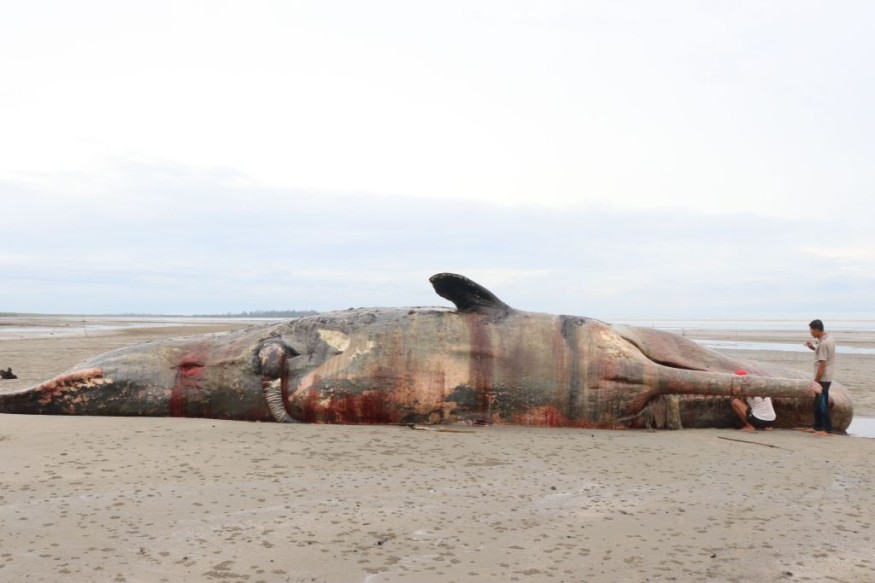In just over a week, Indonesia has reported three cases of beached sperm whales. The most recent one is a 17-meter-long sperm whale in Bali.
Sperm whales are deep-sea creatures that dwell and hunt at depths of up to 3,000 meters, according to BBC. They use sonar to navigate, emitting sound pulses that ricochet off distant surfaces, allowing them to construct a vivid image of their aquatic environment.

Sperm Whale Strandings in Indonesia
On April 5, a sperm whale with bleeding wounds was discovered stranded on Lepang Beach in Bali, Indonesia. The Star reported that since Bali is a popular whale migration path, it is possible that the injuries were caused by getting trapped amid reefs in shallow waters.
The whale was stranded alive and later pushed back into the water by residents and the rescue team. In the same week, several whale carcasses were discovered on Batu Lumbung Beach in Bali, East Java Province's shores, and Timor Island.
Additionally, six dead dolphins were found in East Nusa Tenggara Province. Investigations are ongoing to determine the cause of these stranding incidents, possibly due to extreme weather and seismic activities, says Yudi Permana, head of the Denpasar Coastal and Marine Resources Management Center.
This time, for the third time, a 17-meter-long sperm whale washed up on Bali's shore and later died. As per Euronews, the sperm whale was discovered stranded on Yeh Leh beach in the Jembrana district of west Bali on April the afternoon of April 8. The police had to cordon off the location to prevent people from stealing the whale's meat or body parts.
In 2018, a sperm whale was discovered dead in Indonesia, with over 100 plastic cups and 25 plastic bags in its stomach, highlighting the archipelago's significant marine pollution issue. Indonesia is the world's second-largest contributor to marine debris after China.
READ ALSO: Massive 30-Foot Sperm Whale Washed Ashore in Israel Beach Found Dead; The Second Case This Year
Why Are There Whale Strandings?
Wildlife Florida said that beaching or cetacean stranding occurs when dolphins and whales strand themselves on beaches, which can be caused by sickness or injury, old age, navigation errors, bad weather, or hunting too close to shore. It is not a significant threat to any species, and the beaching of a single, live animal is rare.
Toothed whales are the most commonly affected, as they live in large groups with intricate social systems, and if one member is sick or in trouble, its distress calls can cause the other members to follow it to the beach, resulting in a mass stranding. Orcas sometimes intentionally beach themselves to hunt shoreline seals.
In the spring of 2022, a 47-foot male sperm whale beached itself off the Florida Keys, which was determined via necropsy to be caused by the whale's ingestion of debris that prevented it from eating its normal diet, leading to its emaciated condition and stranding.
RELATED ARTICLE : 47-Foot Dead Sperm Whale Found in Florida Keys Likely Died Due to Various Debris in Its Stomach, Experts Say
Check out more news and information on Whales in Science Times.












